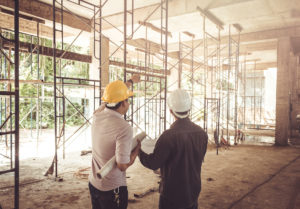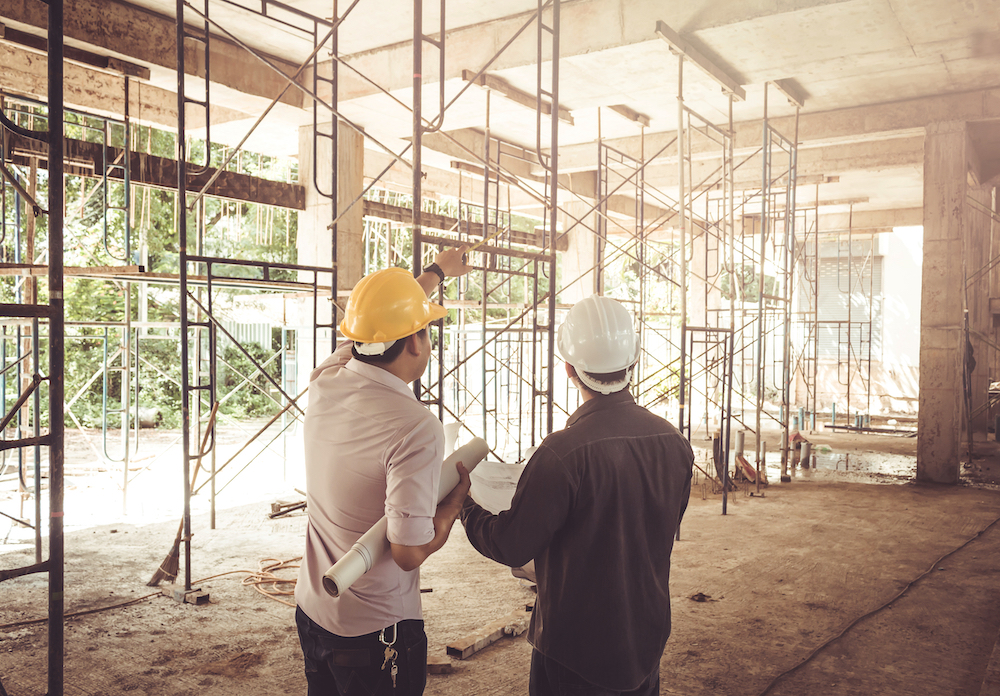
Mechanics liens are powerful tools to secure payment, but in some situations, it’s ultimately a lien’s priority that determines whether or not the lien claimant will be paid. If proceeds from a foreclosure sale are insufficient to cover all encumbrances against the property, parties at the end of the priority line can be left out in the cold waiting for payment that will never come.
Because of these high stakes the issue of priority is often a hotly contested topic, and, like many aspects of mechanics lien law and procedure, can be subject to a high-stakes game of hot-potato in which many parties attempt to best position themselves, often at the expense of the other parties on the project. A situation such as this was recently examined by a California appeals court, and the outcome wasn’t what the lien claimant hoped for.
Background of the Case
The mechanics lien and deed of trust at issue stem from the construction of a medical office complex, and was examined by the court in Moorefield Construction, Inc. v. Intervest-Mortgage Investment Co., 230 Cal. App. 4th 146 (2014). A construction loan was provided by Intervest-Mortgage Investment Company and Sterling Savings Bank (“lenders”) that was secured by a deed of trust on the subject property. The general contractor, Moorefield Construction, was, as part of the lending agreement for the property owners to obtain the construction loan from the lenders, required to sign a subordination agreement stating that all mechanics liens were subordinate to the lenders’ deed of trust.
The project proceeded for some time, with routine pay applications being paid with no fanfare. Moorefield’s final two pay applications, however, were not paid due to the property owner’s default on the construction loan. The final two pay applications amounted to over $2 million, and Moorefield filed a mechanics lien against the property, and filed an enforcement lawsuit to recover the money owned. The subordination clause was determined to be against California’s public policy by the trial court under the view that the California constitution provided a guarantee of mechanics lien priority. The instant appeal followed, and the appeals court disagreed.
Subordination of Mechanics Lien to Deed of Trust Allowed
The appeals court overturned the decision that the mechanics lien at issue had priority over the deed of trust based on an examination of statutory language. The California Civil Code states that neither an
owner nor original contractor by any term of a contract, or otherwise, shall waive, affect, or impair the claims and liens of other persons whether with or without notice except by their written consent, and any term of the contract to that effect shall be null and void.
Through an examination of this language, the court of appeals noted that the statute disallowed an owner or GC from impairing the lien rights of other parties without those parties’ express consent, not from impairing its own lien rights. The subordination of their own lien rights in relation to the lenders’ deed of trust was not specifically contemplated by statute.
Further, the court determined that the California public policy notion that mechanics lien laws should be interpreted in favor of the mechanics lien claimant cannot be relied upon to out-rank the plain language of the mechanics lien statutes like the one at issue here. If the statute clearly only disallowed a party from diminishing or extinguishing other parties’ lien rights, the public policy of interpreting the law in favor of the lien claimant would not support the determination that it also forbade the party from impairing its own lien rights.
California general contractors should take note that subordination clauses in construction lending agreements can be enforceable, and should take caution when reviewing their contracts, and be on the lookout for any such clause.



